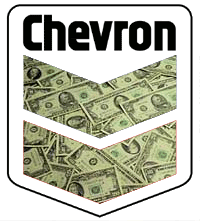This is about the eighth time I've seen a report simliar to this one that undisclosed donors are financing a Schwarzenegger trade mission.
Fifty-two business delegates will join Schwarzenegger on the trip, according to a list the Governor's Office released Friday. A third of those going represent interests that have donated to Schwarzenegger's campaigns.
The governor's trip will be financed by the California State Protocol Foundation, a tax-exempt organization not required to disclose its donors. California Chamber of Commerce leaders, including President Allan Zaremberg, serve as the group's officers.
The foundation is not required by law to disclose its contributors and has not done so. In 2005, the last year for which IRS forms were available, the group received nearly $2 million in revenue. It reported $1 million in travel expenditures that year after Schwarzenegger led a weeklong trade mission in China.
The excuse put forth by the Governor's spokespeople is always the same: this SAVES taxpayer money because they don't have to finance these trade missions! Really? What about all the corporate welfare checks that get cut as a result of this access? What about all the watered-down regulations that cost taxpayers, not only with money but with public health and quality of life? What about the state contracts that could go to lower bidders who don't have the same relationships (read: bribery poke) with the Governor?
over…
Frank Russo is right:
Take a look around and you'll see that this is a bipartisan problem that needs fixing–the same way that a true reformer, Hiram Johnson– took on the railroads which controlled our state a hundred years ago. His legacy is a California Constitutional prohibition against accepting any gifts of free transportation from railroad or other transportation companies. It needs to be extended to cover today's corruption, subtle and otherwise, of our elected officials. […]
We've seen a record of obscene campaign contributions in California the last election cycle–topping $600 million dollars. The next campaign season is upon us, and the Governor has proposed bans on fundraising during certain months of the year when the budget is being considered and at the end of the session and bill signing times. The California Progress Report has railed against the influence of campaign contributions on the political process and the corruption of state government. But these other “gifts” to public officials also need to be scrutinized.
Action is needed, not because our elected officeholders are corrupt–any more than anyone else–but because they are human and influence is why campaign donations and private funding for trips and the like are given by private interests in this state. The same was true in when bold Progressive Reforms were needed in 1911 and human nature is the same today. Only now it's not the railroads.
It should frankly be outlawed for a private company with business before the state to finance the Governor's travel, especially when it's supposed to be official business. This is government for sale from the guy who was supposed to be such a big reformer because he was richer than dirt. This is also why I've been so adamant about the CDP-Chevron donation. Influence peddling in the capital is an epidemic that needs to stop.

